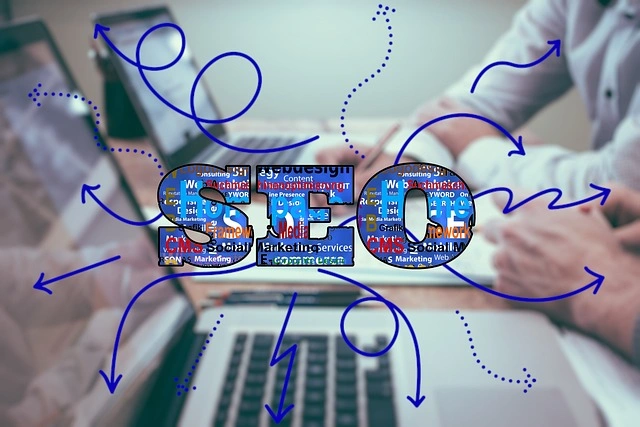
SEARCH ENGINE OPTIMIZATION (SEO)
SEARCH ENGINE OPTIMIZATION (SEO): NAVIGATING SEARCH TRENDS IN 2025
In the digital era, search engine optimization (SEO) is a vital strategy for brands striving to remain visible in an increasingly crowded online environment. SEO helps brands enhance their digital presence by optimizing their websites and content to rank higher on search engine result pages (SERPs). However, search trends are not static. They are constantly evolving due to changes in technology, user behavior, and search engine algorithms. For brands, staying on top of these shifts is crucial to ensure they don’t fall behind their competitors.
As we look toward 2025, search engine optimization will continue to evolve rapidly. The advancements in artificial intelligence (AI), machine learning, voice search, user experience (UX), and evolving search algorithms will drive significant changes in how SEO strategies are implemented. Navigating these shifts will require businesses and marketers to adopt more sophisticated, user-centric approaches while ensuring their content remains relevant, engaging, and discoverable.
In this article, we will explore the key trends shaping SEO in 2025, the challenges brands will face, and the strategies they need to implement to stay ahead. From AI-driven search engines to the rise of voice search and the increased importance of user experience, the SEO landscape of 2025 promises to be both exciting and challenging.
The Evolution of SEO: A Snapshot of the Past
To understand where SEO is headed in 2025, it is helpful to reflect on its evolution. In the early days of the internet, SEO was mainly about keyword optimization. Brands would stuff their websites with keywords to rank higher on search engines. However, as search engines like Google became more sophisticated, they began prioritizing relevance, user intent, and content quality over simple keyword matching.
Significant updates like Google’s Panda, Penguin, and RankBrain shifted the focus of SEO toward creating high-quality, engaging content that satisfied the needs of users. Algorithms began considering various factors, including page speed, mobile-friendliness, backlinks, and user signals, as indicators of a website’s credibility and relevance. By 2025, these shifts will continue to evolve, with newer technologies such as AI and machine learning playing a significant role in shaping how search engines evaluate and rank content.
Key SEO Trends to Watch in 2025
1. AI and Machine Learning: The Heart of Search Engine Algorithms
Artificial intelligence (AI) and machine learning (ML) have already begun to impact SEO, but by 2025, they will be even more integral to how search engines process and rank content. Google’s AI-based algorithms, such as RankBrain and BERT, have already reshaped SEO by improving how search engines understand context and user intent.
By 2025, AI and ML will be deeply embedded in the fabric of search engines, leading to more personalized, intuitive search results. Here’s how these technologies will impact SEO:
- Contextual Search Results: AI-powered algorithms will continue to enhance search engines’ ability to understand not just keywords but the broader context behind user queries. Search engines will analyze user behavior, past searches, location, and other data to deliver highly personalized results. Marketers will need to create content that aligns with the specific intent of their target audience, ensuring their messaging is clear and relevant.
- Content Creation and Optimization: AI will also play a significant role in content creation and optimization. With AI tools becoming more advanced, marketers will increasingly use AI to generate content, optimize headlines, suggest keywords, and improve readability. In fact, platforms like OpenAI’s GPT-3 and Jasper AI are already enabling businesses to create content more efficiently. However, human oversight will remain crucial for ensuring that the content resonates with audiences and adheres to the brand’s voice.
- Search Engine Evolution: In 2025, we may see search engines themselves becoming more AI-driven. With AI algorithms able to understand complex user intent, search engines could become even more adept at filtering out irrelevant content and promoting highly targeted, valuable results. Brands will need to focus on optimizing their content for AI-driven ranking systems that prioritize relevance and user satisfaction.
2. Voice Search: Optimizing for Conversational Queries
Voice search has been on the rise for years, and by 2025, it will become a dominant method of searching online. With the proliferation of smart speakers like Amazon Alexa, Google Assistant, and Apple Siri, more and more users will turn to voice commands for finding information, making purchases, and navigating the web.
The shift to voice search will bring a major change in SEO practices, as voice searches are typically more conversational and natural compared to text-based queries. Optimizing for voice search will require brands to focus on the following:
- Long-Tail Keywords: Voice searches tend to be longer and more conversational than typed searches. For example, someone might type “best pizza near me” into Google, but they are more likely to ask, “What are the best pizza places around me?” when using voice search. As a result, brands will need to optimize for long-tail keywords and question-based queries. This means using phrases that people are likely to speak rather than just type.
- Featured Snippets and Position Zero: When optimizing for voice search, brands should focus on earning featured snippets, the concise answers that appear at the top of Google’s search results. These snippets are often read aloud by voice assistants, making them highly valuable for brands that want to be discovered through voice search. Optimizing for featured snippets involves structuring content in a clear, concise way with direct answers to common questions.
- Local SEO: Voice searches often have local intent, with users asking about nearby businesses, services, or locations. In 2025, local SEO will be even more important as voice search queries are often tied to a specific geographic area. Ensuring that your business is listed on Google My Business, and optimizing for local keywords, will be essential to capture voice search traffic.
3. User Experience (UX): A Core Ranking Factor
User experience (UX) has been a critical element of SEO for some time, but by 2025, it will be even more prominent. Google’s Core Web Vitals update, which measures factors like page load time, interactivity, and visual stability, has already emphasized the importance of providing users with a seamless browsing experience. In 2025, this trend will continue to intensify, and search engines will place a greater emphasis on how well users engage with websites.
The key aspects of UX that will affect SEO include:
- Page Speed: A slow-loading website can significantly harm your search rankings. In 2025, optimizing page load times will be crucial for ranking well on search engines, particularly on mobile devices. Faster websites provide a better user experience, leading to lower bounce rates and higher engagement.
- Mobile Optimization: Mobile-first indexing is already in place, meaning that Google uses the mobile version of a website for ranking purposes. In 2025, websites that are not optimized for mobile devices will be at a significant disadvantage. Brands need to ensure that their websites are responsive, easy to navigate, and fast on smartphones and tablets.
- Mobile Usability: Mobile usability goes beyond responsive design. Brands will need to ensure that their mobile websites are designed with user-friendly navigation, clear calls to action, and easily readable text. Ensuring that mobile users have a positive experience on your site will help improve both engagement and rankings.
- Interactive Content: Interactive content, such as quizzes, polls, and videos, will become more essential in engaging users and improving dwell time on websites. Content that encourages users to spend more time on a site is viewed favorably by search engines, improving the chances of ranking higher.
4. Semantic Search and Content Relevance
By 2025, semantic search will be a dominant force in how search engines interpret and rank content. Unlike traditional keyword-based search, semantic search seeks to understand the meaning and context behind words, phrases, and sentences. This shift means that search engines will place more emphasis on the overall relevance and comprehensiveness of content rather than just matching specific keywords.
Brands will need to adopt a more holistic approach to SEO, focusing on creating content that thoroughly addresses user queries and offers value. Some key tactics for optimizing for semantic search include:
- Comprehensive Content: Brands will need to create long-form, in-depth content that covers topics comprehensively and answers a wide range of related questions. Content that provides a thorough understanding of a subject will have a better chance of ranking well, as search engines will prioritize content that provides real value to users.
- Contextual Clustering: Semantic search encourages content creators to cluster related topics together in a way that provides a complete understanding of a subject. By organizing content into topic clusters, brands can demonstrate their authority and expertise on a subject, improving their chances of ranking for a variety of relevant queries.
- Natural Language Processing (NLP): Natural language processing will continue to improve search engines’ ability to understand user queries and content. Marketers will need to create content that aligns with the natural language used by their target audience. This means focusing less on exact match keywords and more on the natural flow of language in the content.
5. Video and Visual Search: A Growing Trend
The importance of video content for SEO will only increase by 2025. Video content is already a powerful tool for engagement, and with platforms like YouTube, TikTok, and Instagram continuing to grow in popularity, optimizing video for search engines will be essential for brands seeking to stay relevant.
- Optimizing for Video SEO: Brands will need to optimize their video content for search engines by using relevant keywords in titles, descriptions, and tags. Videos with high engagement (likes, shares, comments) are more likely to rank higher in search results, so producing engaging and high-quality video content will be critical.
- Visual Search: Visual search technology is also expected to grow in popularity by 2025. With tools like Google Lens, users will be able to search for information using images instead of text. Brands will need to optimize their images by using descriptive file names, alt text, and high-quality visuals to improve their visibility in visual search results.

Challenges in SEO for 2025
While SEO in 2025 presents significant opportunities, it also comes with its own set of challenges. Some of the key obstacles brands may face include:
- Increasing Competition: As more businesses embrace SEO, the competition for top rankings will intensify. Brands will need to focus on delivering truly valuable and unique content to stand out in a crowded digital space.
- Algorithm Complexity: As search engines continue to refine their algorithms, brands will need to stay on top of changes and adjust their strategies accordingly. Keeping up with frequent algorithm updates can be time-consuming and challenging, especially for smaller businesses with limited resources.
- Data Privacy Regulations: With the implementation of stricter data privacy laws, such as the General Data Protection Regulation (GD










